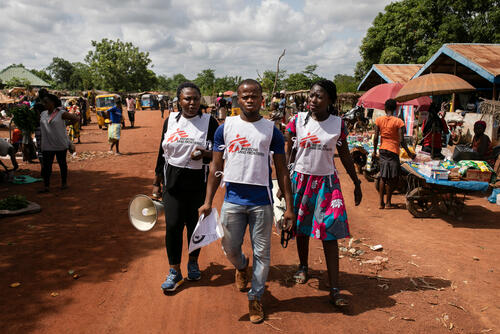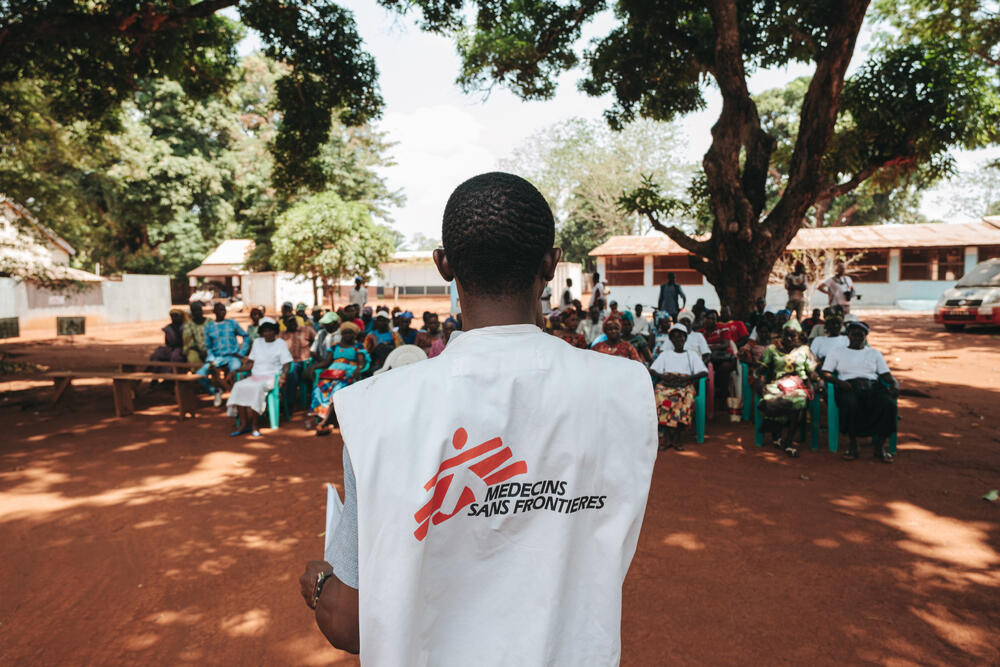Advocacy, bearing witness and speaking out
Témoignage, which translates as “bearing witness”, is a core principle of MSF’s humanitarian mission.
It embodies our duty to speak out against or denounce instances that dehumanise people and communities living through healthcare crises. This includes injustice, violence and exclusionary policies.
In practice, it is carried out with the sole intention of improving the health and wellbeing of the people we treat and support.
"We are not sure that words can always save lives, but we know that silence can certainly kill"
Témoignage is what drives our advocacy work around the world.
Whether highlighting a forgotten conflict, denouncing discriminatory policies against people on the move, exposing the hallmarks of a mass atrocity, or challenging the injustice of denying medical care, témoignage guides our efforts.
MSF advocacy in the UK
We leverage MSF’s expertise as an independent provider of humanitarian medical assistance to influence networks in the UK.
Through ongoing analysis and relationship building, MSF UK’s Humanitarian Advocacy Analysis Representation and Policy (HAARP unit) maintains a broad network of individuals in Government, Parliament, multilateral organisations, academic institutions, NGOs, civil society and medical organisations within the UK.
How we advocate for action
Our advocacy work covers a wide range of humanitarian crises, current conflicts and specific topics, including migration and displacement, nutrition and access to specific medical products such as vaccines and diagnostics.
We advocate for the people under our care to governments, including the UK, UN agencies, international organisations and other stakeholders.
We do so to highlight key concerns, galvanise action and change policies, practices and narratives in ways that will alleviate or avoid further suffering.
We are led by what our teams are witnessing on the frontline of humanitarian healthcare.
This means our advocacy is always grounded in our operations, the realities of our work, and the experiences of our project staff and patients.
It’s based on analysis of medical and non-medical data, frontline research, and the testimonies of our staff, patients and their communities – seeking to amplify their voices.

Speak out: Get involved with our campaigns
Our values
Independence. Neutrality. Impartiality.
It is easy to write inspiring words to define an organisation’s mission. However, it is much harder to put those principles into practice.
